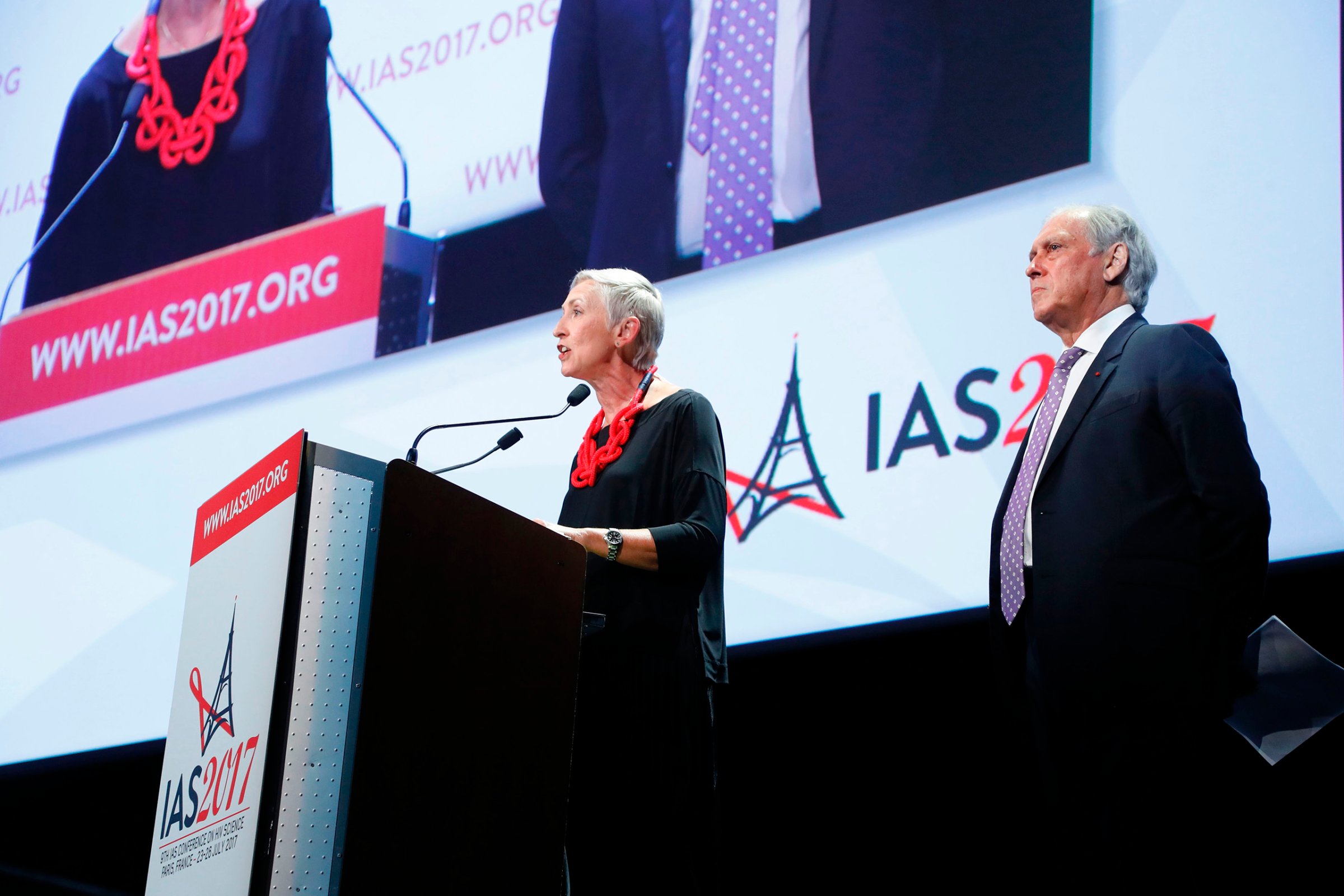
HIV researchers announced on Monday that a nine-year-old child from South Africa has been living with HIV in remission for almost nine years—without continuing the use of HIV drugs. Researchers say this is the third case of prolonged HIV remission after early treatment.
The study adds to new but growing evidence that early treatment of HIV in children, beginning in infancy, may bring HIV to undetectable levels and potentially lower the need for life-long drug therapy.
At the the 9th International AIDS Society Conference on HIV Science in Paris, researchers presented the results on the child who was diagnosed with HIV in 2007—32 days after birth—and enrolled in a clinical trial. In the trial, infants diagnosed with the virus were randomly assigned to either receive delayed antiretroviral therapy (ART) or to be given early ART treatment for 40 or 96 weeks, at which point it would be stopped. The South African child is among 143 infants who received ART for 40 weeks.
The child had very high levels of HIV in the blood before starting treatment when it was about nine weeks old. With treatment, levels of the virus dropped to a point where they were no longer detectable. After 40 weeks of treatment, researchers stopped the therapy and tracked the child closely. So far, the child has maintained nearly undetectable levels of the virus. Scientists were able to detect a small supply of virus in a very small portion of immune cells, but so far they have not found evidence of an HIV infection, and the child has shown no symptoms of the disease.
The child is the third to reach long term remission with no drugs. In 2010, a child referred to as the “Mississippi Baby” was born with HIV and began treatment just 30 hours after birth. The treatment was stopped when the child reached around 18 months. After a couple years, however, the virus re-appeared and the child was put back on ART. In 2015, scientists reported another case in a French child. According to the case study, a French baby was born with HIV in 1996 and received treatment when it was three months old. The child stopped treatment a few years later and has continued to control the virus without drugs.
MORE: How Cows Are Helping the Fight Against HIV
“To our knowledge, this is the first reported case of sustained control of HIV in a child enrolled in a randomized trial of ART interruption following treatment early in infancy,” said study author Avy Violari, head of pediatric research at the Perinatal HIV Research Unit, in a statement.
The study authors believe that other factors may be contributing to why the South African child’s immune system has been so successful at keeping HIV levels down, and they plan to keep following the child and study its immune system.
Currently, doctors and scientists start children with HIV on ART and do not stop the treatment. According to Violari, the child in the new case study partook in the trial 10 years ago when treatment guidelines for children were different. “Although the medications have risks, the benefits far outweigh the risks,” said Violari in an email to TIME. “At this stage, we don’t recommend any child stops treatment.”
More Must-Reads from TIME
- Cybersecurity Experts Are Sounding the Alarm on DOGE
- Meet the 2025 Women of the Year
- The Harsh Truth About Disability Inclusion
- Why Do More Young Adults Have Cancer?
- Colman Domingo Leads With Radical Love
- How to Get Better at Doing Things Alone
- Michelle Zauner Stares Down the Darkness
Contact us at letters@time.com